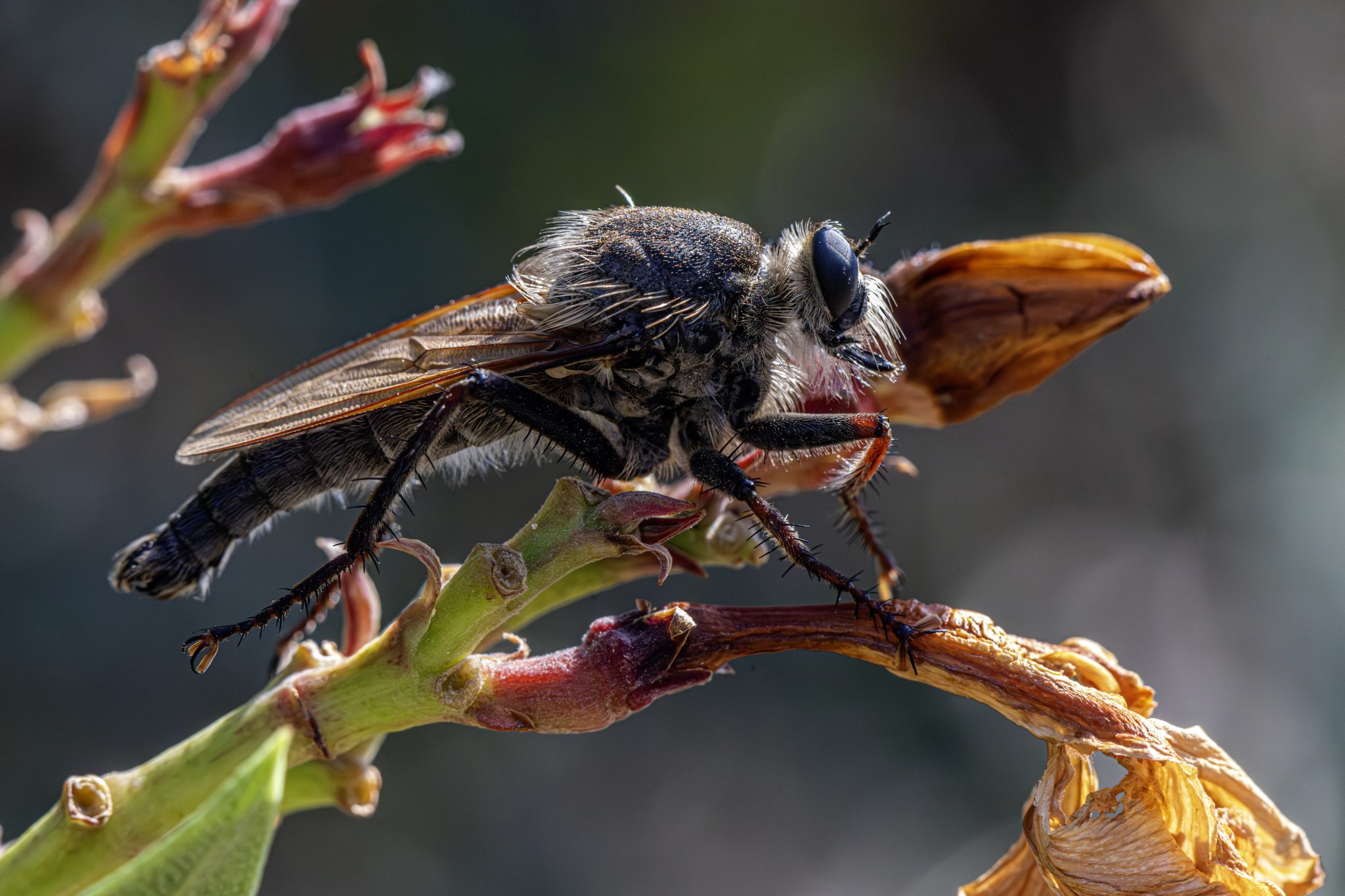Here’s a detailed profile of the Golden-tabbed Robberfly (Eutolmus rufibarbis), a predatory insect often seen in sunny open areas during summer.
🪰 Golden-tabbed Robberfly Overview
- Scientific name: Eutolmus rufibarbis
- Common name: Golden-tabbed Robberfly
- Family: Asilidae (robberflies)
- Size: ~14–18 mm in length
- Flight period: Late May to August
🌍 Distribution and Habitat
- Range:
- Found across much of Europe, including the British Isles, and extending into parts of western Asia.
- More frequent in central and southern regions.
- Habitat:
- Prefers dry, sunny, open places:
- Heathlands
- Grasslands
- Dry meadows and pastures
- Sandy or chalky slopes
- Often perches on bare soil patches, stones, or low vegetation while hunting.
- Prefers dry, sunny, open places:
🐾 Appearance and Identification
- Body:
- Stout, bristly body typical of robberflies.
- Thorax and abdomen generally dark brown with fine hairs.
- Face:
- Distinct golden-yellow hairs (the “golden tabs”) between the eyes and around the facial area.
- Dense “mystax” (bristly moustache) helps protect eyes from struggling prey.
- Legs:
- Strong, spiny legs for grabbing prey mid-air.
- Wings:
- Transparent with slight brownish tint toward the base.
🍽 Diet and Hunting Behavior
- Predator: Feeds on other insects, including:
- Flies, bees, wasps, grasshoppers, beetles, and butterflies.
- Hunting style:
- Perches in sunny spots, then launches short, fast flights to catch prey in mid-air.
- Uses piercing mouthparts to inject enzymes that paralyze and liquefy prey tissues before sucking them out.
🐣 Life Cycle
- Eggs: Laid in soil or among plant debris.
- Larvae: Live in the soil, predatory on other insect larvae.
- Overwintering: Usually as larvae in the ground, pupating the following spring.
- Adult lifespan: Several weeks during summer.
⚠ Conservation Status
- IUCN: Not globally threatened; generally common where habitat remains intact.
- Locally affected by:
- Loss of open, dry habitats
- Agricultural intensification reducing insect prey availability
🔎 Interesting Facts
- Robberflies are sometimes called the “wolves of the insect world” for their aggressive predation.
- The golden facial hairs are thought to play a role in species recognition.
- Adults often bask in the sun to warm up their flight muscles before hunting.
Visited 49 times, 1 visit(s) today
Views: 3875
